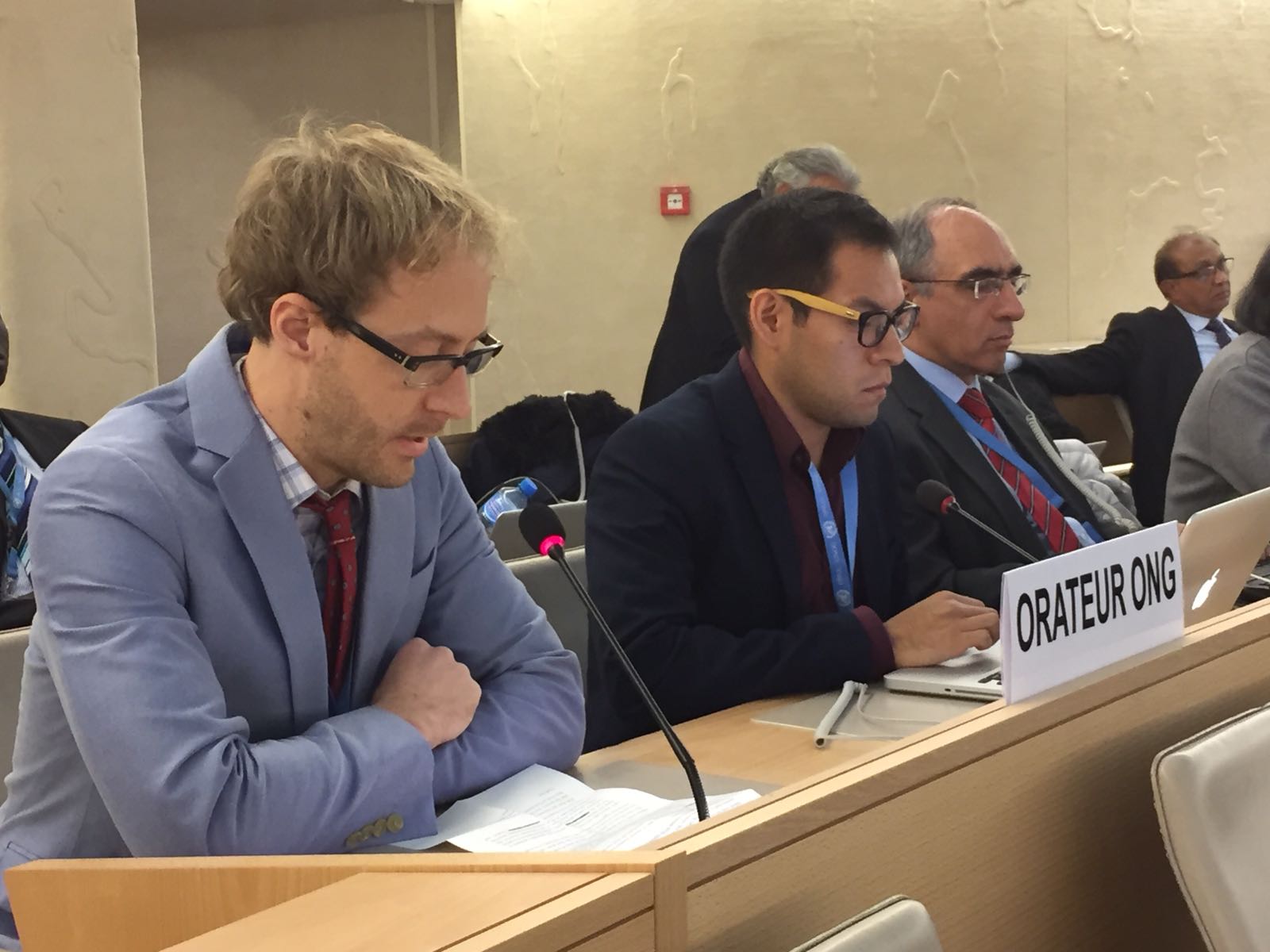11 September 2017 – Americans for Democracy & Human Rights in Bahrain (ADHRB) delivered an oral intervention today at the 36th Session of the United Nations Human Rights Council (HRC). ADHRB’s Legal Fellow Devin Kenney delivered the intervention under HRC Item 3’s Clustered ID with the Working Group on Enforced or Involuntary Disappearances. Video of the statement as well as the text are below; for a PDF of the text, please click here.
Mr. President,
Alsalam Foundation together with Americans for Democracy & Human Rights in Bahrain would like to thank the Working Group for its diligent work. We share the concerns raised in the Working Group’s report, including the recognition of both short- and long-term disappearances. We particularly appreciate the ongoing cases raised by the Working Group in Bahrain and the mandate’s outstanding request for a country visit to visit the kingdom.
The report addressed four outstanding cases of enforced disappearances in the kingdom, among them the cases of Fadhel Abbas Radhi and Sayed Alawi Hussain al-Alawi.
Bahraini authorities arrested Fadhel Abbas Radhi from his home in the middle of the night in September 2016. Since that time, his family has received no information regarding his whereabouts, well-being, or any charges he may have against him. Additionally, reports suggest that Fadhel Abbas Radhi will be among the first civilian cases tried by Bahrain’s military courts following the king’s decision to amend the constitution in April 2017.
Bahraini security forces arrested Sayed Alawi from his place of work in October 2016. Since that time, his family has only received a few short phone calls from him, and they are concerned he is at severe risk of torture. The family is not aware of his location or reason for.
Fadhel Abbas Radhi and Sayed Alawi’s families have persistently attempted to engage with Bahrain’s complaint mechanisms, including the Special Investigation Unit and the Ministry of Interior Office of the Ombudsman. However, the mechanisms meant to address complaints of violations have consistently denied the families information about the victims’ reasons for detention, location, and wellbeing.
Both men remain disappeared.
With short- and long-term disappearances on the rise in countries like Bahrain, what best practices does the Working Group suggest be implemented to address these trends and hold perpetrators accountable?
Thank you.





